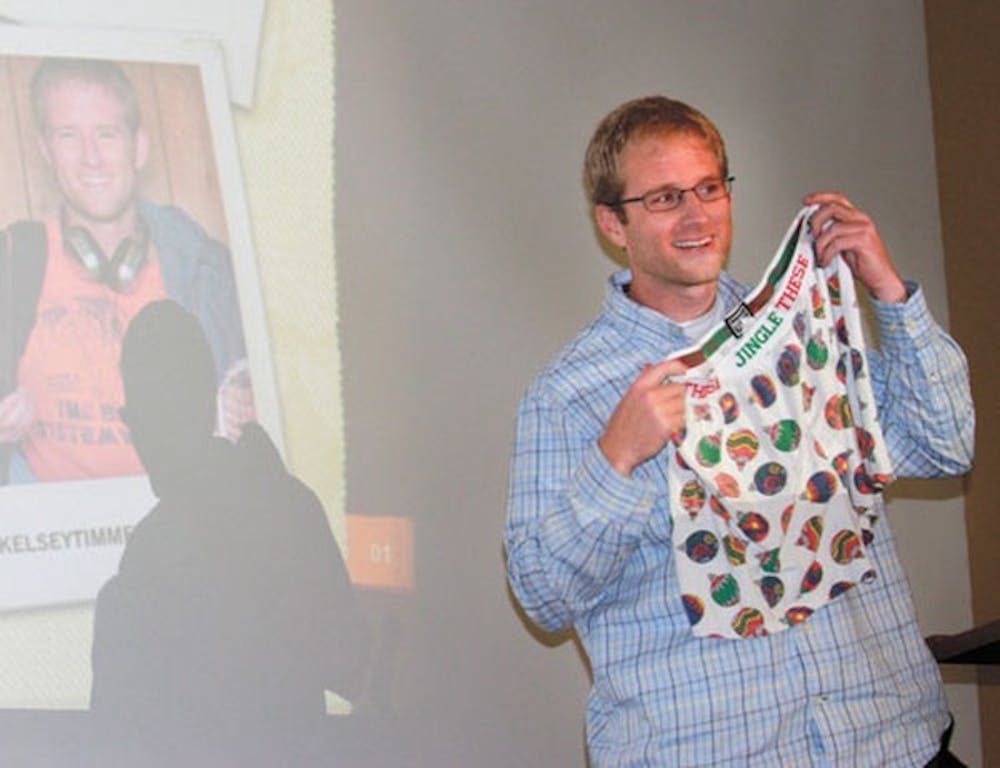Kelsey Timmerman strolls into the room with his hands in his pockets, casually chatting with a student he met in the hallway. Timmerman makes his way to the front of the lecture hall in the David Letterman Media and Communication Building, and the student finds a seat in what will soon be a standing-room only audience.
Clad in wire-rimmed glasses, a blue plaid button-down and brown leather loafers, the tell-tale hole in the back pocket of his sand-blasted jeans is the only give-away in Timmerman's otherwise pristine J. Crew look that this man once hunted for crocodiles in the Honduras jungle and played Frisbee with trash-collecting kids in a Cambodian dump. This is the man who also took out a second mortgage on his home to fund a trip to Bangladesh inspired by his favorite boxers.
But that's exactly who Timmerman is.
Tuesday night, Timmerman shared the story of the global tour of garment factories chronicled in his book "Where Am I Wearing?"
"Where are you wearing?" he asked the audience. "Do you know where that country is? Do you know what life is like there?"
In 2007, Timmerman set out on a mission to find out exactly what life was like for the people who made his five favorite items of clothing. Along the way he met Arifa, a Bangladeshi single mother of three who makes $24 a month. He also met Nari, a Cambodian woman who supports nine people on $50 a month and a Chinese couple, Dewan and his wife Zhu Chu, that works 100 hours a week.
He shared photographs of these people as well as their stories — which are not black and white despite often-difficult conditions.
"One person's sweatshop is another person's opportunity," he said. "I never would have thought that before this trip."
Timmerman also read excerpts from his book, including the conclusion where he realizes how many people are affected by globalization while in Macy's at the Muncie Mall.
Fashion senior Bekah Hilleson said Timmerman's story helped her to put the garment industry into perspective.
"I'm in a manufacturing class right now where we're learning about the process," she said. "It was interesting to connect that with the people who actually go through the process."
Megan Whitacre, a sophomore political science major, said she felt a call to action.
"When people talk about buying power, how everything is worth a vote, I realize maybe that's not all we should do," she said. "He said we should contact the companies and let them know what we think about what they do."
Reactions like Whitacre's are exactly what Timmerman hopes for.
"In the book I make the argument to be an engaged shopper," he told the audience. "People should shop for what's important to them."



